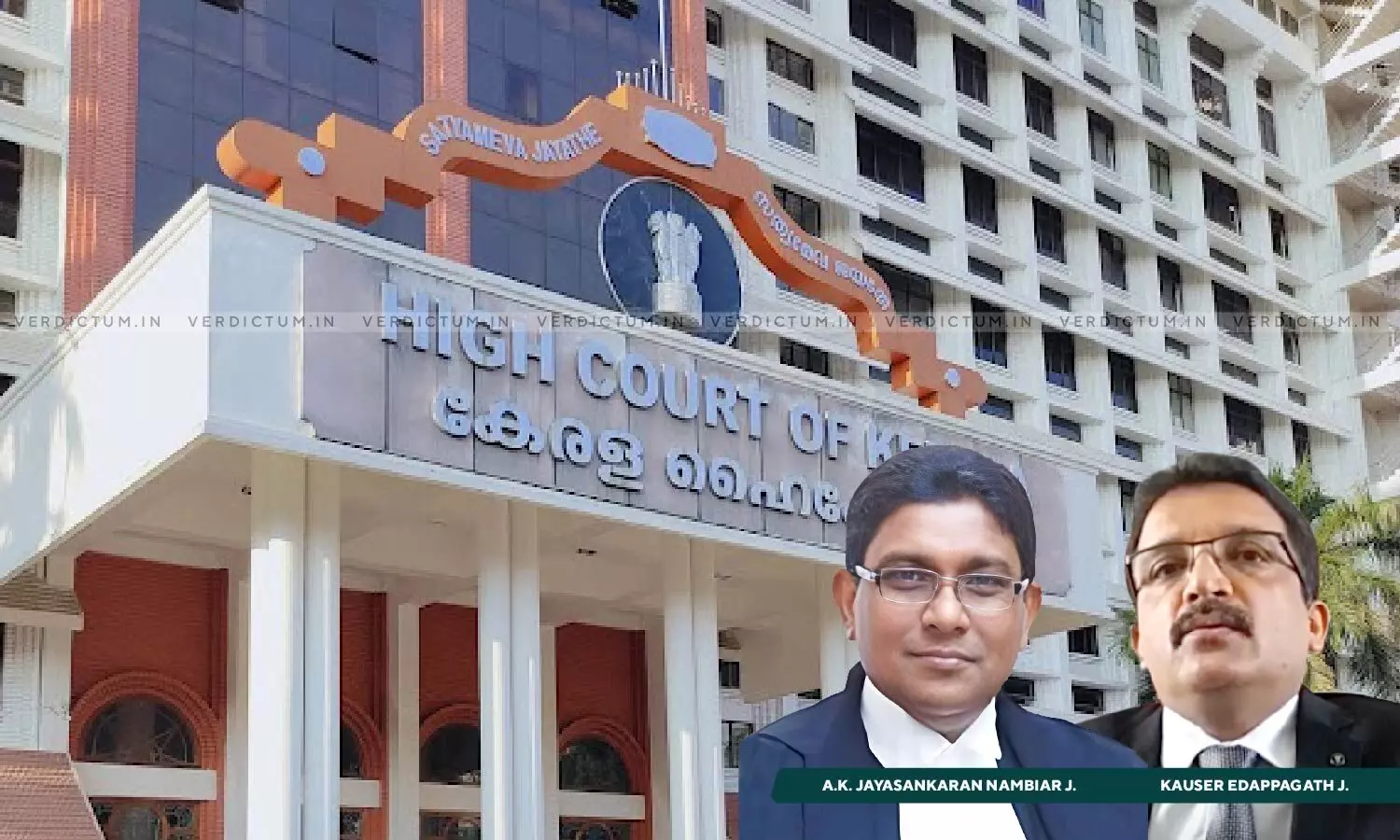
Magistrate Can Stop Proceedings U/S. 258 CrPC When Accused's Presence Cannot Be Secured Despite Best Efforts: Kerala HC
 |
|The Kerala High Court held that Magistrate can exercise his/her power to stop the proceedings in cases where the presence of the accused cannot be secured despite best efforts.
While issuing directions to the Magistrates in the State in this regard, the court observed that the view taken by it in an earlier judgment that Section 258 of Cr. P.C. could be invoked only in those cases wherein no prima facie case is made out, the accusation does not constitute an offence, or the prosecution must fail due to a technical defect, is not a good law.
A Division Bench of Justice A.K. Jayasankaran Nambiar and Justice Kauser Edappagath held, “We hold that in summons cases instituted otherwise than upon complaint, after the issuance of the summons, if the Magistrate is of the opinion that procuring the presence of the accused is an impossibility, owing to the incorrect/fake address of the accused in the final report or for any other valid reasons and the Magistrate is unable to proceed further in the matter, he may exercise his discretion under Section 258, to stop the proceedings and release the accused. In our view, not only is the power vested in the Magistrate sufficiently wide in its nature and scope but also in cases where the presence of the accused cannot be secured notwithstanding the earnest and sincere efforts of the Prosecutor, the Magistrate is duty bound to exercise his/her power to stop the proceedings. The Magistrate must record reasons before stopping the proceedings and releasing the accused".
The Court appointed Advocate Nandagopal S. Kurup as amicus curiae to assist and heard arguments from the amicus curiae and the Senior Government Pleader S.U. Nazar.
The High Court initiated a suo motu case due to the increasing backlog of petty cases in various Magistrate Courts in the State. The cause of the backlog was attributed to difficulties in securing the presence of the accused, often due to fake or incomplete addresses. Previous court orders had restricted the use of Section 258 of the Code of Criminal Procedure (Cr.P.C.) by Magistrates to stop proceedings in such cases.
The main issue before the Court was whether Section 258 of the Cr.P.C. allows a Magistrate to stop proceedings when the accused's presence cannot be secured.
The Court analyzed Section 258, stating that it grants the Magistrate discretionary power to stop proceedings in a summons case. The Court emphasized the importance of preventing the wastage of court time and reducing case backlogs. The Court said, “The wording of the Section is undoubtedly very wide and can cover any set of circumstances in which a Magistrate thinks that the proceedings in a summons case ought not to be continued any longer. No doubt, the power vested in the Magistrate is to be sparingly exercised only in appropriate cases, where proceeding with the case would amount to an abuse of the process of law or result in undue harassment of the accused or otherwise result in a miscarriage of justice. The primary intent of the legislation was to prevent the wastage of time of courts and to reduce backlog of cases, increasing time and economic efficiency.”
The Court concluded that Section 258 can be invoked if the Magistrate, after issuing summons, believes that procuring the accused's presence is impossible due to incorrect information or other valid reasons. The Court clarified that the power should be used sparingly and with valid reasons, and the Magistrate must record the reasons before stopping the proceedings.
Additionally, the Court provided instructions to Magistrates in cases of petty offenses and other summons cases, outlining the factors they should consider before invoking Section 258:
- In the case of petty offences where the prosecution files a report stating unambiguously that despite its best efforts at locating the accused, it has not been successful in securing the presence of the accused before the Magistrate, the Magistrate concerned shall scrutinise the report submitted by the prosecution to satisfy himself/herself of the fact that reasonably sufficient steps have been taken by the prosecution to ensure the presence of the accused or that the costs of ensuring the appearance of such accused far exceed the maximum fine that is prescribed under the Statute for the offence concerned. In the event of the Magistrate being satisfied of either of the aspects mentioned above, then it would be permissible for the Magistrate to record an order of stoppage of proceedings in accordance with Section 258 of the Cr.P.C.
- In the case of those summons-cases instituted otherwise than upon a complaint, which do not qualify as petty offences, where the prosecution files a report stating unambiguously that despite its best efforts at locating the accused, it has not been successful in securing the presence of the accused before the Magistrate, the Magistrate concerned shall scrutinise the report submitted by the prosecution to satisfy himself/herself of the fact that reasonably sufficient steps have been taken by the prosecution to ensure the presence of the accused and that the costs of ensuring the appearance of such accused far exceed the maximum fine that is prescribed under the Statute for the offence concerned. In the event of the Magistrate being satisfied of both of the aspects mentioned above, then it would be permissible for the Magistrate to record an order of stoppage of proceedings in accordance with Section 258 of the Cr.P.C.
- By way of abundant caution, we may clarify that we have dealt only with a situation where the prosecution expresses its inability to secure the presence of an accused in a summons-case before the Magistrate concerned and not any other situation in which the provisions of Section 258 of the Cr.P.C. may come into play.
Cause Title: Suo Moto High Court Of Kerala v. State of Kerala & Anr., [2023/KER/76512]
Click here to read/download Judgment